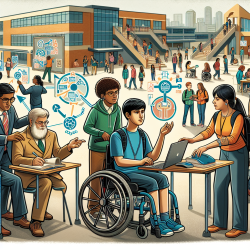Introduction
The terrorist attacks on September 11, 2001, exposed over 400,000 individuals to psychological and physical stressors, along with hazardous pollutants. Emerging research indicates that this exposure may increase the risk of mild cognitive impairment (MCI) among those affected. This blog explores the findings of a workshop convened by the World Trade Center Health Program (WTCHP) to investigate cognitive aging and impairment in the 9/11-exposed population, offering insights for practitioners to enhance their skills and encourage further research.
Understanding Cognitive Aging and Impairment
Mild Cognitive Impairment (MCI) is an intermediate state between normal cognitive function and dementia. The workshop highlighted two potential pathways linking 9/11 exposure to MCI: chronic PTSD symptoms and environmental exposure to neurotoxins. Both pathways are supported by evidence from studies on combat veterans and 9/11 first responders.
Key Findings and Implications
- PTSD and Cognitive Impairment: Chronic PTSD symptoms are significantly associated with cognitive impairment. Practitioners should consider PTSD management as a critical component in mitigating cognitive decline.
- Environmental Exposure: Airborne neurotoxins from the 9/11 attacks may contribute to cognitive decline. Further research is needed to understand the specific impact of these pollutants on cognitive health.
- Biomarkers and Neuroimaging: The workshop emphasized the importance of biomarkers and neuroimaging in diagnosing and understanding cognitive impairment. Practitioners should stay informed about advancements in these areas to enhance diagnostic accuracy.
Encouraging Further Research
The workshop identified several research gaps, including the need for longitudinal studies to establish causal pathways and the development of a multi-institutional collaborative research network. Practitioners are encouraged to engage in research initiatives and collaborate with institutions to advance understanding and treatment of cognitive impairment.
Conclusion
As the 9/11-exposed population ages, addressing cognitive health becomes increasingly important. Practitioners can improve outcomes by integrating insights from the workshop into their practice, focusing on PTSD management, understanding environmental impacts, and utilizing biomarkers and neuroimaging. Further research and collaboration are essential to enhance our understanding and treatment of cognitive impairment in this population.
To read the original research paper, please follow this link: A Workshop on Cognitive Aging and Impairment in the 9/11-Exposed Population.










